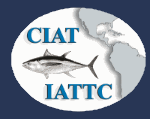
The IATTC, its Director and staff regret to announce the passing away of a respected and beloved friend and colleague, Brian Shepard Hallman, at his home in Charleston, South Carolina on March 18, 2024.
Born in Washington D.C. on April 4, 1947, Brian grew abroad with his family in locations such as Thailand and Egypt, thus gathering experiences that set the stage for his career in diplomacy in addition to ensuring an enduring love for travel while enjoying different cultures.
After graduate and post-graduate studies at William and Mary and at the Johns Hopkins School of Advanced International Studies, Brian joined the public service, working first for the National Marine Fisheries Service (NOAA) before entering the US Department of State where he served in for 25 years in the Office of Marine Conservation. During his time at the State Department, Brian received an award for Outstanding Achievements in Global Affairs and was described as, “playing a pivotal role in developing international oceans policy and resolving numerous marine resource issues.”
As many others of his generation, his professional career began when the legal order of the seas and oceans was being thoroughly reconstructed. It is therefore not a coincidence that he appears in the IATTC records for the first time as a participant for the National Marine Fisheries Service at a bilateral meeting between the USA and Mexico on yellowfin tuna in 1974, a few months before the Third United Nations Conference on the Law of the Sea would start its substantive negotiations.
In October of that same year, he participated, as a member of the United States delegation, in the 30th meeting of the IATTC in Ottawa, Canada. Since then, he actively participated in all subsequent meetings of the Commission, until June 1999, in Guayaquil, Ecuador, at the 63rd meeting of the IATTC.
During the last decade he had the opportunity, but also the responsibility, to participate actively in the negotiations that led to the adoption of the ground-breaking 1998 Agreement on the International Dolphin Conservation Program, which entered into force in February 1999. As a recognition of his role in the process, he was elected Chair of the 1st Meeting of the Parties to the AIDCP which took place that year.
His link with the Commission was not severed with the end of his activities in representation of the USA. Having retired from the Department of State, he joined the IATTC staff during the summer of 1999, as Senior Policy Advisor and Deputy Director, positions that he held for almost 12 years, consistently demonstrating his professional skills and human qualities that won him the respect and affection of his colleagues and of the members of the Commission and relevant stakeholders.
Brian left IATTC in 2011 but remained active in its circle since he became then Executive Director of the American Tunaboat Association in San Diego, until his final retirement in 2019.
He will be remembered fondly, not only his contribution to the IATTC and, through it, to the conservation and management of the tuna and tuna like species in the eastern Pacific Ocean and associated species and ecosystems, but also for his character and personality that made him a beloved and valued friend to many who were fortunate enough to work with him.
Born in Washington D.C. on April 4, 1947, Brian grew abroad with his family in locations such as Thailand and Egypt, thus gathering experiences that set the stage for his career in diplomacy in addition to ensuring an enduring love for travel while enjoying different cultures.
After graduate and post-graduate studies at William and Mary and at the Johns Hopkins School of Advanced International Studies, Brian joined the public service, working first for the National Marine Fisheries Service (NOAA) before entering the US Department of State where he served in for 25 years in the Office of Marine Conservation. During his time at the State Department, Brian received an award for Outstanding Achievements in Global Affairs and was described as, “playing a pivotal role in developing international oceans policy and resolving numerous marine resource issues.”
As many others of his generation, his professional career began when the legal order of the seas and oceans was being thoroughly reconstructed. It is therefore not a coincidence that he appears in the IATTC records for the first time as a participant for the National Marine Fisheries Service at a bilateral meeting between the USA and Mexico on yellowfin tuna in 1974, a few months before the Third United Nations Conference on the Law of the Sea would start its substantive negotiations.
In October of that same year, he participated, as a member of the United States delegation, in the 30th meeting of the IATTC in Ottawa, Canada. Since then, he actively participated in all subsequent meetings of the Commission, until June 1999, in Guayaquil, Ecuador, at the 63rd meeting of the IATTC.
During the last decade he had the opportunity, but also the responsibility, to participate actively in the negotiations that led to the adoption of the ground-breaking 1998 Agreement on the International Dolphin Conservation Program, which entered into force in February 1999. As a recognition of his role in the process, he was elected Chair of the 1st Meeting of the Parties to the AIDCP which took place that year.
His link with the Commission was not severed with the end of his activities in representation of the USA. Having retired from the Department of State, he joined the IATTC staff during the summer of 1999, as Senior Policy Advisor and Deputy Director, positions that he held for almost 12 years, consistently demonstrating his professional skills and human qualities that won him the respect and affection of his colleagues and of the members of the Commission and relevant stakeholders.
Brian left IATTC in 2011 but remained active in its circle since he became then Executive Director of the American Tunaboat Association in San Diego, until his final retirement in 2019.
He will be remembered fondly, not only his contribution to the IATTC and, through it, to the conservation and management of the tuna and tuna like species in the eastern Pacific Ocean and associated species and ecosystems, but also for his character and personality that made him a beloved and valued friend to many who were fortunate enough to work with him.

